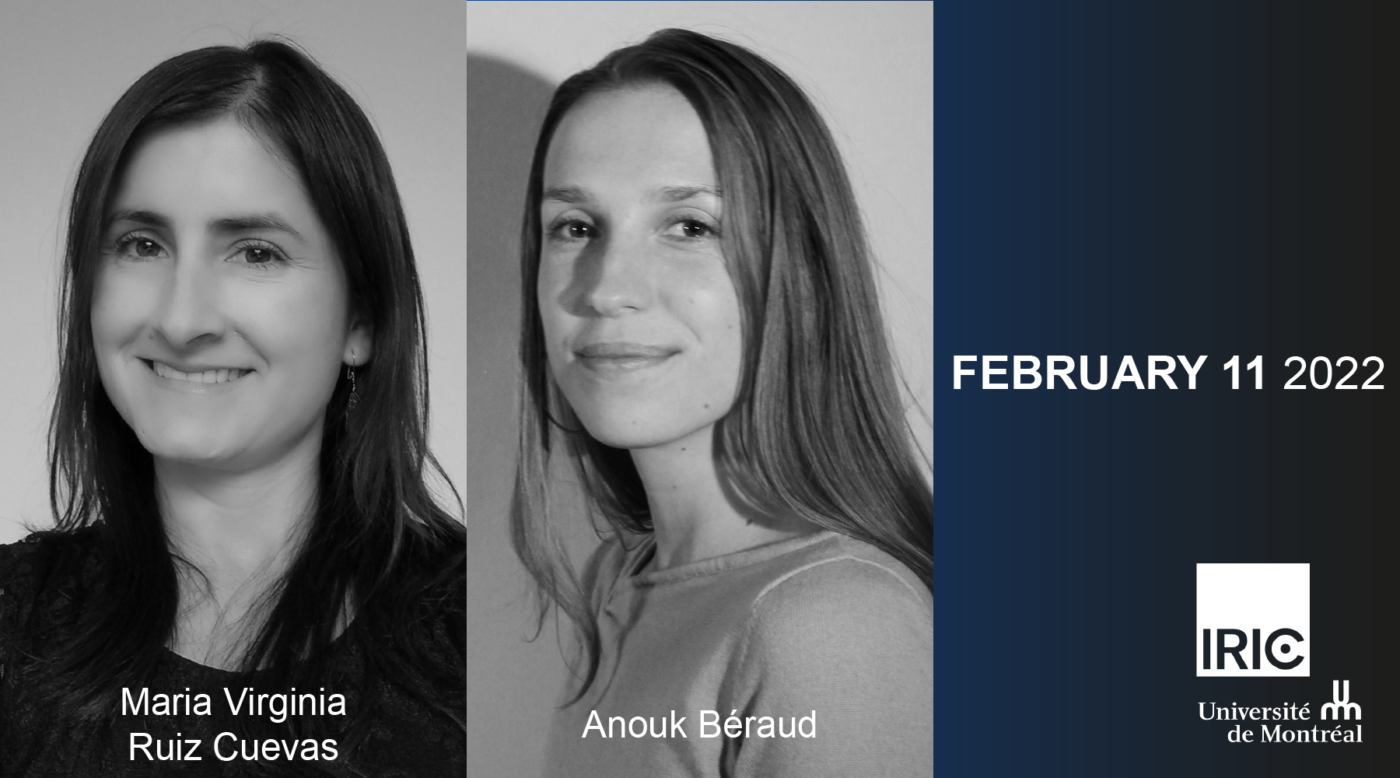News
IRIC marks the 2022 International Day of Women and Girls in Science
Published on February 11, 2022
On this symbolic day, IRIC is proud to mark the exceptional contribution to cancer research made by all of its women members.
On February 10 and 11, the Faculty of Medicine of the Université de Montréal set up an event to celebrate women in science. Anne Marinier, Principal Investigator and Director of the Drug Discovery Unit, shared her career path along with other investigators and inspiring women who explained how they paved the way towards research in health sciences and what inspired them to pursue a scientific career in spite of the obstacles.
As part of the Organizing Committee, two IRIC students helped organize the event. Maria Virginia Ruiz Cuevas is a Ph.D. student being co-directed in the laboratories headed by Dr. Claude Perreault and by Sébastien Lemieux. Anouk Béraud is a Master’s student and a member of Delphine Bouilly’s team. Maria Virginia and Anouk have agreed to answer a few questions and to share their vision and aspirations with respect to their scientific career.
Congratulations on your career and your involvement!
Why did you choose the science field? What motivated you?
Maria Virginia: I’ve always been interested in understanding the biological processes that govern how the human body works. That’s why I jumped on the opportunity to carry out a research internship at the Université Pierre et Marie Curie in Paris, during which my work involved the metabolism and how it relates to cardiovascular diseases. One of my greatest motivations is to make a contribution to research in the hope that the knowledge gained will have a positive impact on our society.
Anouk: I chose sciences because after CEGEP, I felt that I didn’t know myself well enough as a person to choose a specific profession. I wanted to study in a field that would provide me with a great deal of freedom with respect to my future prospects. I’ve always been amazed by the universe and I think that I would have been happy to study any facet of it. With that in mind, I was interested in all of the sciences. I specifically chose physics because I didn’t have a particularly mathematical mind and I knew that I would gain by understanding the world from that angle. Today, I’m really happy about the choice I made because physics has made me very thorough while also providing me with great freedom because it blends well with any other science.
What has been your greatest achievement since beginning your career in science?
Maria Virginia: I am most proud of the preparation and publication of my first scientific article, published in the journal Cell Reports, which was about identifying non-canonical proteins expressed in lymphoma cells. That article required a lot of work from our entire great team. I’m very proud of it because beyond the gratification of sharing new knowledge, there is also the reward of cultivating the human side, creating tremendous ties and collaborations.
Anouk: When my first article was quoted by a research group that I greatly admire! It’s a wonderful feeling to know that people you respect have read your work and thought highly enough of it to devote a few sentences of their article to it.
What would you like to say to the next generation of scientists, especially to the young women who would like to have a career in science?
Maria Virginia: Science is an exciting field and women can bring a lot to the table. There is no question that it’s a career that requires a great deal of personal, intellectual and at times physical investment, but it generates a huge reward. The satisfaction of achieving something that can alter what we know is priceless. In my case, I love all of the opportunities that this field has brought me: developing my critical thinking skills, speaking three languages and discussing matters with brilliant people…which I had always considered as being unimaginable and unreachable for me!
Anouk: I would like to point out the great variety of people who have been successful in science. We generally think of someone who has always had a scientific vocation and who excels in school. Those people exist and are often great scientists, but you can also be a tremendous scientist without matching that profile! I also think that we gain by expanding our personal definition of excellence. Doing good scientific work can be much more than writing the most articles possible and getting grants. It’s also about creativity, work method, scientific rigour, patience, initiative and curiosity. I feel that being proactive and curious can take you a long way!
